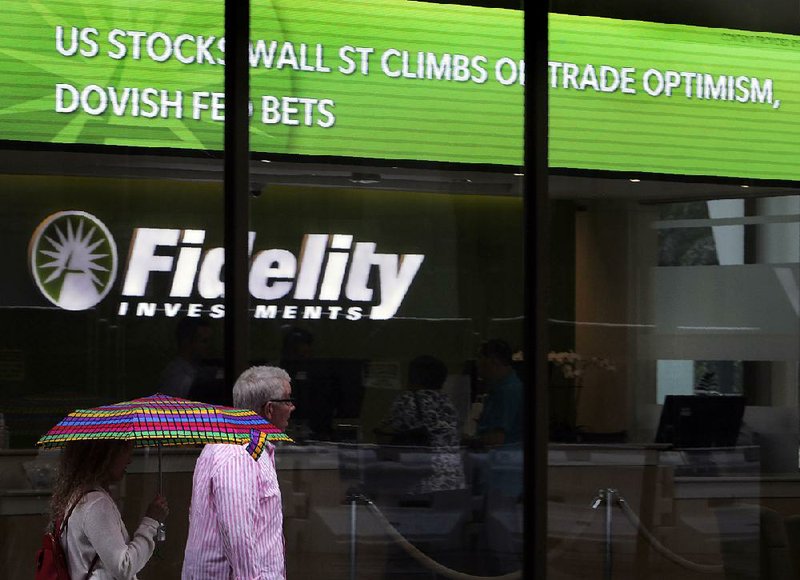WASHINGTON -- There's little dispute that the Federal Reserve this week is likely to do something it hasn't done since 2008, when the U.S. economy was gripped by the recession: Cut its benchmark interest rate.
This time, by contrast, the economy is solid by most measures. Consumers are spending. Unemployment is close to a half-century low. A recession hardly seems imminent.
Yet the Fed under Chairman Jerome Powell has signaled that rising economic pressures -- notably from President Donald Trump's trade wars and from a global slowdown -- have become cause for concern. So has an inflation rate that remains chronically below the Fed's target level.
So the Fed has decided that a rate cut now -- and possibly one or more additional cuts to follow -- could help inoculate the economy against a potential downturn. The idea is that lowering its key short-term rate, which can affect consumer and business loans, could encourage borrowing and spending and energize the economy.
Wall Street has welcomed that prospect. Since the start of the year, the mood of investors has swung decisively from angst about potentially higher rates to elation over the prospect of looser credit. That has helped drive a stock market rally.
Still, skeptics wonder whether Fed rate cuts at this point would really do much to bolster an economy whose borrowing rates are already low. Some even worry that the central bank will be taking a needless risk: By cutting rates now, the Fed is disarming itself of some ammunition it would need in case the economy did slide toward a recession. Some also suggest that by driving rates ever lower, the Fed might be helping to fuel dangerous bubbles in stocks or other risky assets.
Mark Zandi, chief economist at Moody's Analytics, said he thinks that in the absence of any economic calamity, only one rate cut is likely this year. David Jones, an economist who has written books about the Fed, agrees with that forecast.
"The market is getting ahead of itself in expecting a series of rate cuts," Jones said.
Diane Swonk, chief economist at Grant Thornton, noted some concern that the Fed may already be fueling a bubble in stocks that could eventually burst and threaten the economy.
Powell will probably be asked about these concerns at a news conference Wednesday after the Fed ends its latest meeting with a policy statement. Reporters will likely also press him about the likelihood of further rate cuts to follow this week's expected move and also whether continued pressure from President Donald Trump to cut rates is damaging the Fed's political independence.
Trump kept up his drumbeat of criticism, complaining in tweets Monday that the Fed raised rates "way too early and way too much" and a small rate cut now "is not enough."
Two government reports last week -- on economic growth during the April-June quarter and orders for durable manufactured goods -- confirmed that the economy remains on firm footing even with pressures at home and abroad. As a result, some analysts believe the Fed may pause after Wednesday's rate cut to see if the economic outlook further brightens before deciding on any further easing.
Other analysts foresee two or even three rate cuts this year as the Fed tries to counter global threats that risk spreading to the United States -- not just prolonged trade rifts but also the exit by Britain from the European Union, a weaker China and the risk of a recession in Europe.
The Fed's current rate policy marks the continuation of an abrupt policy shift beginning early this year. In December, the Fed had raised its benchmark rate for the fourth time in 2018 and projected two additional rate increases in 2019. At the time, Powell also suggested that the Fed would keep reducing its bond portfolio indefinitely -- a step that would further contribute to higher rates. Stock prices tumbled for days afterward.
Business on 07/30/2019

